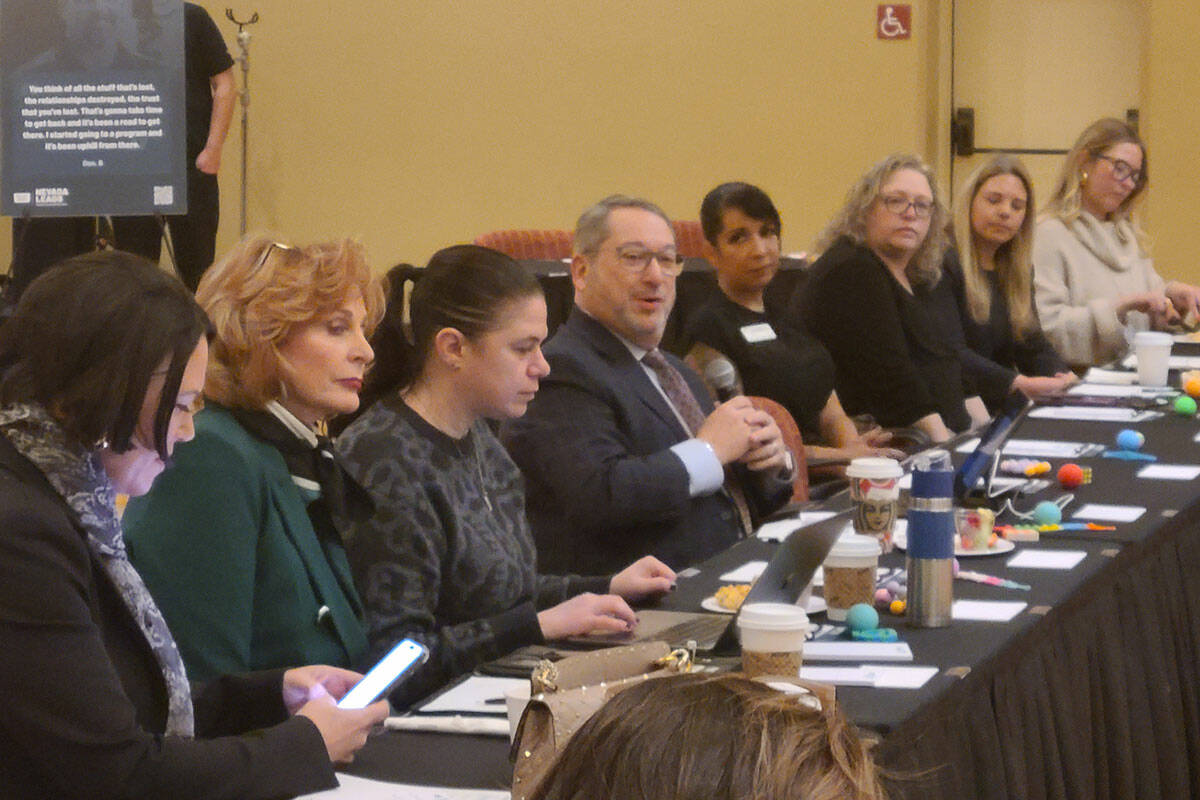Gambling
‘Nevada can do better’: Advocates say more must be done to address problem gambling

At a time when there are diminishing resources for people to get help treating compulsive gambling disorders amid continued growth in the gaming industry statewide, some academics and problem gamblers themselves say the issue has reached the crisis stage.
Alan Feldman, chair of the Advisory Committee on Problem Gambling, said there’s not enough awareness about what problem gambling is and how those affected can find help.
“I think that we have isolated gambling counseling from other substance use disorders,” he said. “That’s not unusual. A lot of states do that, but we here in Nevada can do better. And we need to find a way to better integrate those two communities. In addition to which, the community of licensed gambling counselors is shrinking rather dramatically.”
Feldman said many counselors are “aging out” and the road to being credentialed to help people is rigorous.
“Because of the way gambling treatment is funded, which is only through state funds, it’s not a business model,” he said. “I know that counselors aren’t doing this to become rich and famous and wealthy, but there still has to be a business model. Right now, the state is only able to reimburse $75 an hour. For most of these counselors, that’s less than their cost per hour to operate a facility. Before you ever started, even with how do you become a counselor? Hundreds of hours of training, supervision, and it’s a very involved process. So we’ve got to take a look at how we’re handling that in the event, and I think some of that came up today.”
Around 35 people gathered Tuesday at downtown’s Historic Fifth Street School to assess how compulsive gamblers can be routed to treatment and how the public can be better educated about the complexities of problem gambling in a state that ranks first in the nation in gambling revenue, but 18th in problem gambling services program allocations.
The roundtable program — the third of three statewide after similar sessions in Reno and Elko — was coordinated by Project Worth-Nevada Leads and sponsored by the Nevada Council on Problem Gambling and the Dr. Robert Hunter International Problem Gambling Center.
Long-term impacts
Because the gambling culture is so prevalent, particularly in Las Vegas, many don’t realize how casual conversations that occur within families can produce long-term impacts on impressionable children.
“We’re not doing anything to tell them before you start watching a football game at night and having side bets with your 14-year-old, which sounds perfectly innocent and not harmful, realize that you could be setting in motion something that ultimately will be very harmful,” Feldman said.
“So how to have parents frame gambling activity for their kids is also, I think, a very important thing. But yeah, we need to, whether it’s late in elementary or certainly in middle school. In middle school is really the place where a lot of these things begin to happen.”
The topic of how to discuss addictive gambling behavior came up during the discussion led by Jeff Marotta, a senior consultant with Problem Gambling Solutions Inc.
Roundtable participants noted that students learn about alcohol and drug addictions, domestic violence and even sex education from public schools, but nothing is mentioned about addictive gambling behavior.
Feldman explained that it’s important for the conversation to start at the public school level.
“Before we give them the credit of doing anything, it’s not about a better job, it’s about doing this at all,” he said. “I know that public schools around the country are under enormous pressure to discuss a wide variety of areas for a wide variety of reasons. In Nevada, this should be something that is fundamentally a part of our education system. Again, the idea isn’t to encourage people to gamble, it’s to acknowledge that it’s around us everywhere we look.”
Contact Richard N. Velotta at rvelotta@reviewjournal.com or 702-477-3893. Follow @RickVelotta on X.
If you or a loved one is struggling with problem gambling or gambling addiction, help is available by calling 1-800-GAMBLER. The National Problem Gambling Helpline offers call, text and chat services 24/7/365. If you or a loved one is in crisis, please call 911 or 988.










